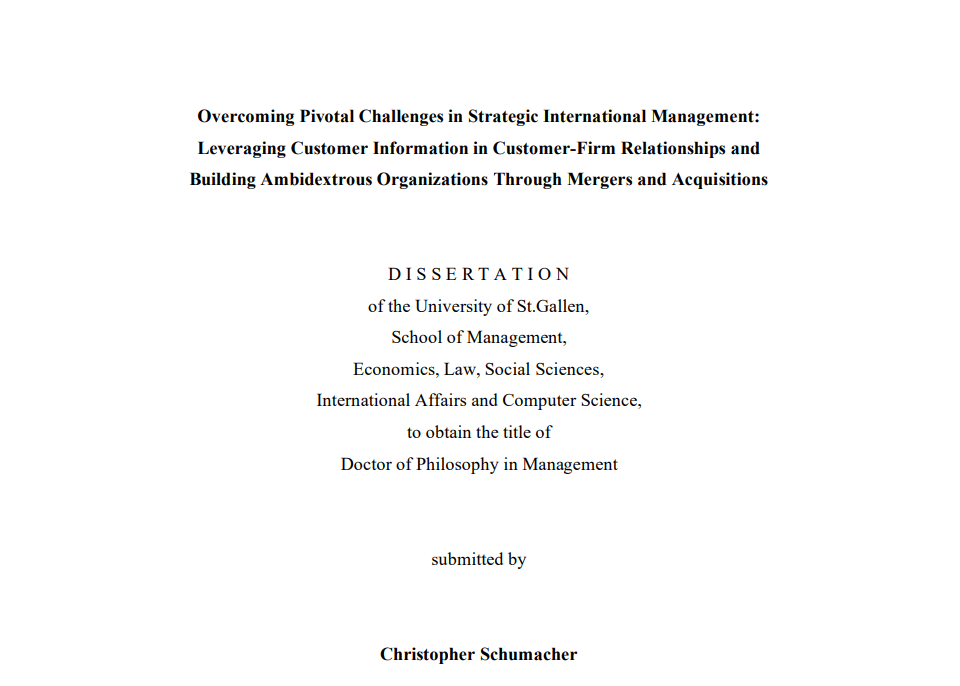This dissertation submitted by Christopher Schumacher addresses two pivotal challenges in strategic international management: 1) information sharing between consumers and firms, and 2) building and managing ambidextrous organizations through mergers and acquisitions (M&As). Regarding the first notion, although “the world’s most valuable resource is no longer oil, but data” (The Economist, 2017), this is not to say that oil is declining in value; instead, this assertion is based on the exponential growth of data and its ever-increasing relevance in business. This development has led to a surge in research centered around the realms of information sharing, its antecedents, and consequences. However, this body of literature is fragmented and lacks resilient frameworks applicable across disciplines. Regarding the second notion, although exploitation and exploration are key drivers of M&As, research that integrates ambidexterity into M&A is under-developed. Accordingly, how ambidexterity can be created through M&As requires further investigation. Adopting a multi-disciplinary approach and deploying a variety of methods, this dissertation’s objectives are 1) to contribute to a better understanding of customer-firm relationships in informationsharing domains that allows firms to develop superior customer strategies and customers to enjoy the benefits of sharing information with firms, and 2) to introduce the concept of an ambidextrous acquisition program that considers the natures of both the target’s business focus and that of the acquisition, allowing firms to develop idiosyncratic, ambidextrous acquisition programs to create ambidexterity.
This dissertation is structured as follows: The Introduction outlines this work’s research motivation and theoretical framing, discusses its practical relevance, and summarizes its objectives. Article 1 investigates how national culture directly influences consumers’ willingness to share personal information (WTS) and moderates the effects of privacy concerns and perceived benefits of information sharing on WTS across countries. Article 2 performs a global market segmentation that helps predict WTS by simultaneously estimating consumer segments and country classes based on consumers’ privacy calculus and relationships with firms. Article 3 develops and tests a conceptual framework that explains the effects of perceived firm privacy strategies on firm performance outcomes. Finally, article 4 demonstrates how an ambidextrous acquisition program can contribute to create ambidexterity by balancing exploitation and exploration.
